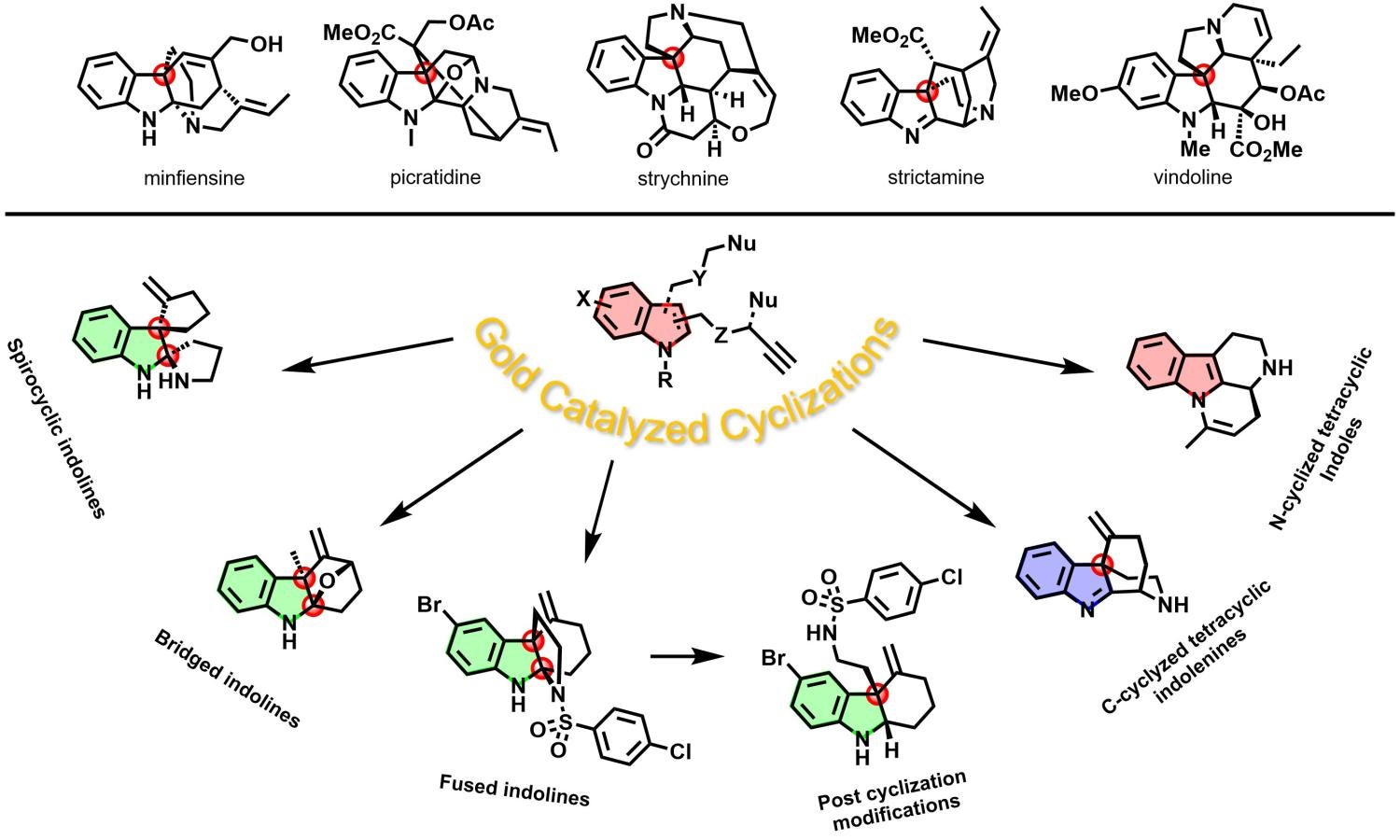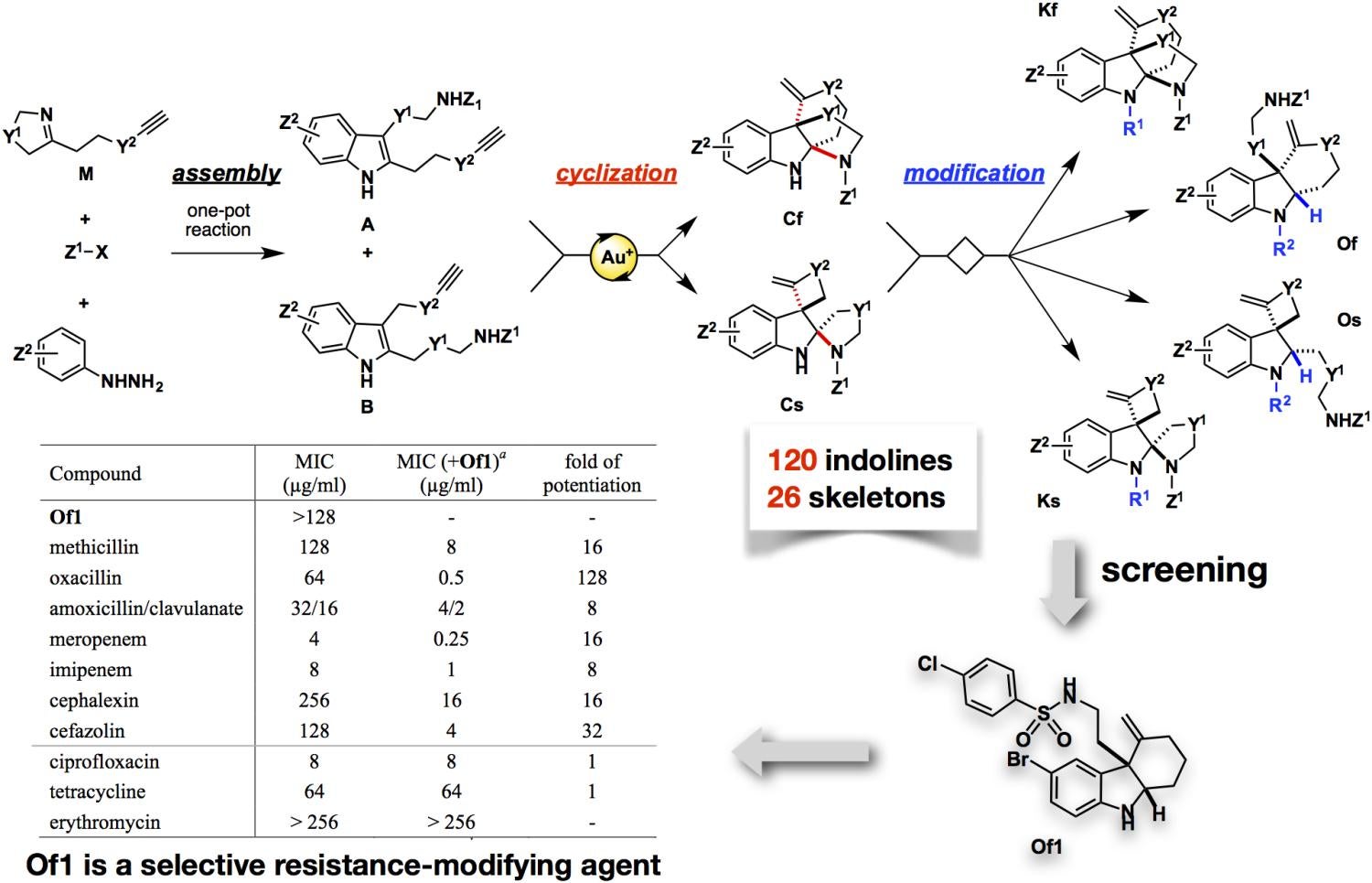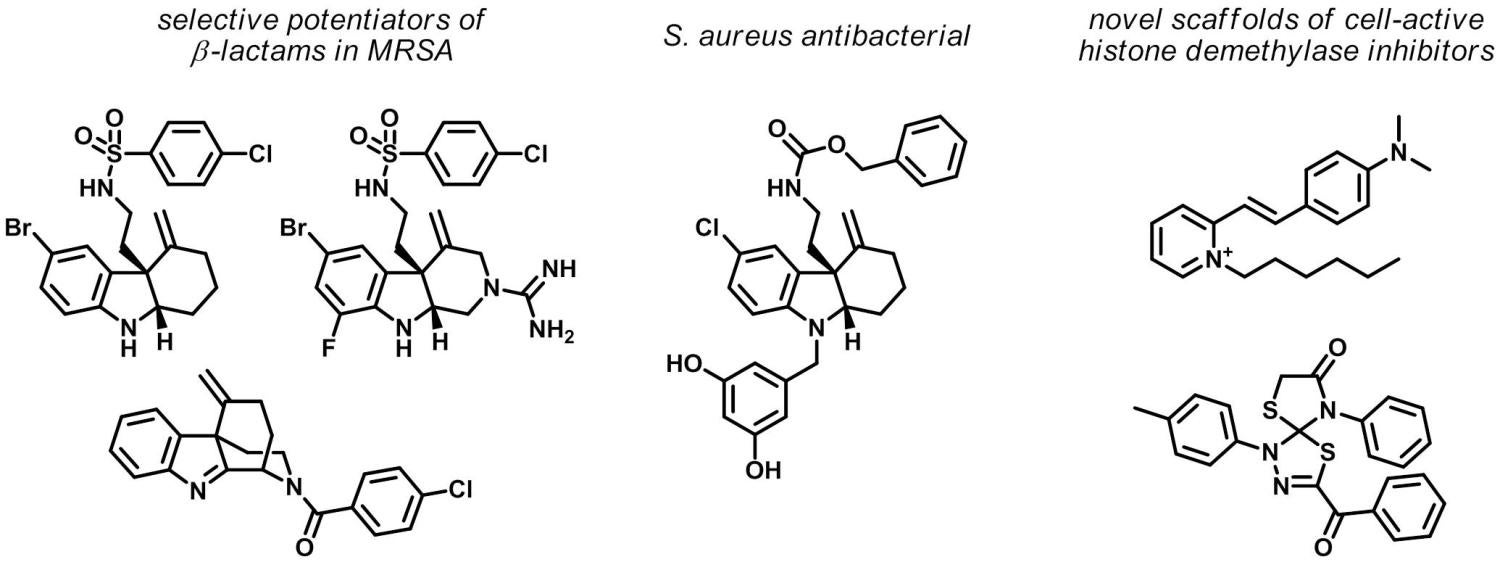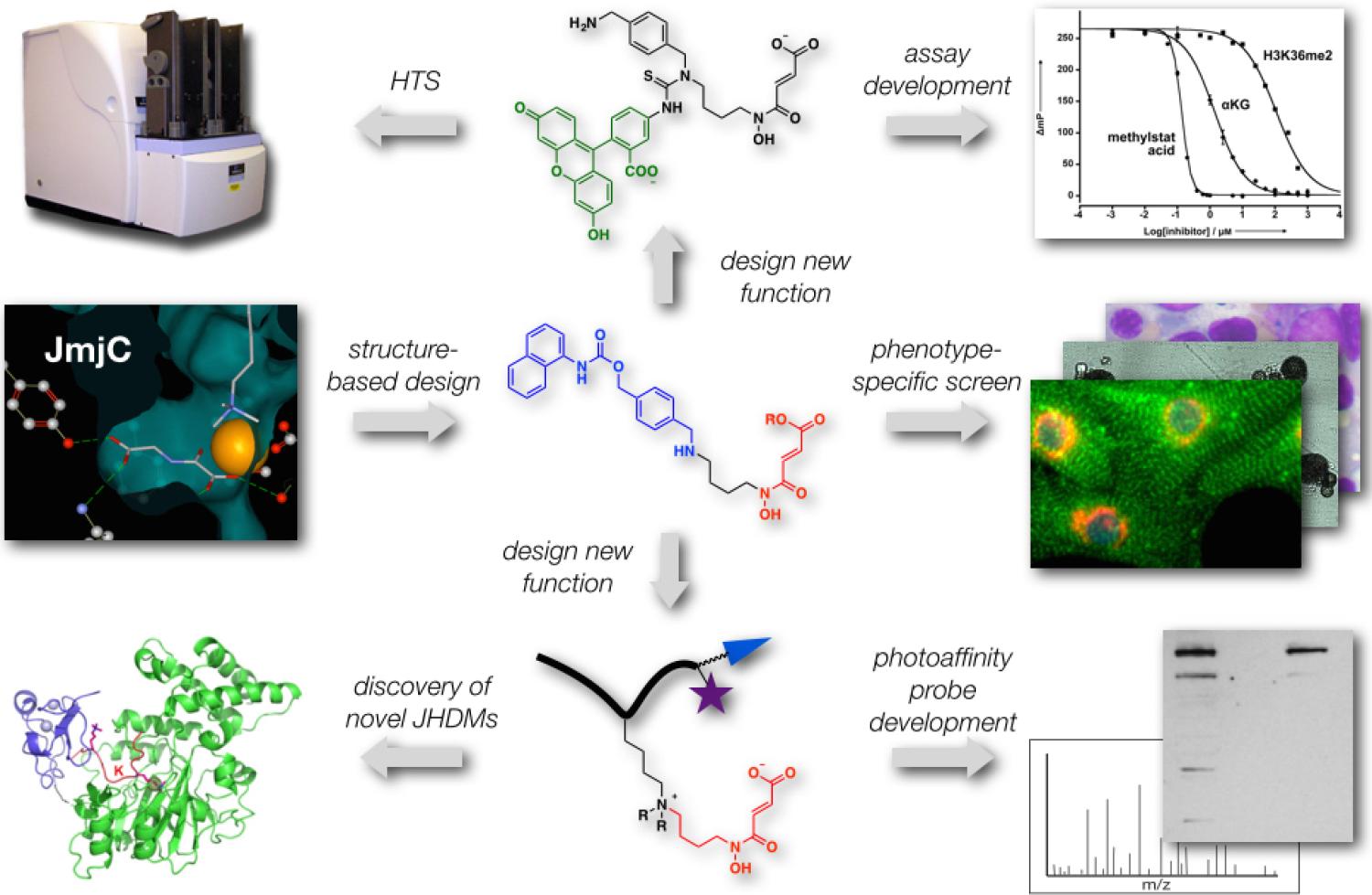Research
Chemical biology is an emerging field that integrates several related disciplines, such as synthetic organic chemistry, biochemistry, molecular and cellular biology. Chemical biologists use small molecules to perturb and understand a range of biological processes including signaling and cognition, differentiation and reprogramming, pathology and the treatment of diseases. We are particularly interested in the development of systematic approaches to discovering novel chemical probes for biological studies.
1. Bio-Inspired Synthesis & Probe Discovery
Natural products, resulting from 3.8 billion years of evolution, are valuable tools for chemical biologists to study biological processes. Many of these molecules and their structural analogs prove useful in medical applications. Recently, researchers have used bioassays to direct isolations of natural products with desired biological activities, such as anti-cancer, anti-bacterial, or antiviral activities. We have developed a series of novel synthetic methodologies and strategies for facile syntheses of polycyclic compounds, reminiscent of the indole alkaloids. Biology-focused screening of these compounds have led to the discovery of a variety of novel chemical probes.
Natural Product-Inspired Synthetic Methods:

Bio-Inspired Synthesis & Screening

2. Small Molecules Discovered from Biology-Focused Screens
As chemical genetics has proved to be a unique and powerful method to study biology, more and more biologists are interested in pursuing these kinds of studies. We have established a high-throughput screening core facility and are currently collaborating with biologists in a variety of areas to discover small-molecule probes with novel biological activities using state-of-the-art high-throughput screening technologies. Current efforts in this category include discovering small molecules that: 1) re-sensitize resistant bacteria to old antibiotics, 2)modulate key Mediator-transcription factor interaction in cancers, and 3) suppress major depression using a novel mechanism.

3. Chemical Epigenetics
Epigenetics is the study of stable and heritable changes in gene expression or cellular phenotype without affecting the underlying DNA sequence of the organism. Epigenetic regulation has been proven to play a critical role in many biological processes, such as gene expression, embryonic development and genomic reprogramming. Our studies in this area focus on chromatin modifications, especially methylations of histone proteins and DNA. These modifications are closely regulated by a series of enzymes, such as histone lysine demethylases (KDMs) and DNA cytosine hydroxylases (TETs). Small molecules inhibiting HDACs or DNMTs have already been proven useful as anti-cancer agents in the clinic. We plan to develop highly selective small-molecule modulators of these enzymes using both knowledge-based design and unbiased screening approach. These molecules should complement genetic tools for the elucidation of the critical roles of chromatin-modifying enzymes in biology.
We have developed and demonstrated the utilities of three types of selective chemical probes for KDMs: 1. cellular probe for the discovery of novel functions of KDMs, 2. fluorescent probes for quatitative measurement of the affinity of KDMs and their probes, and 3. substrate-selective peptidic probes for affinity pulldown of KDMs from complex protein mixtures.


